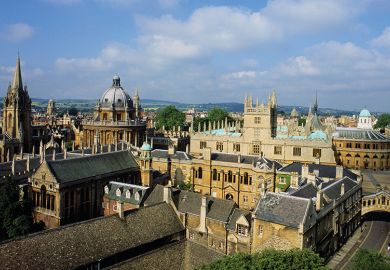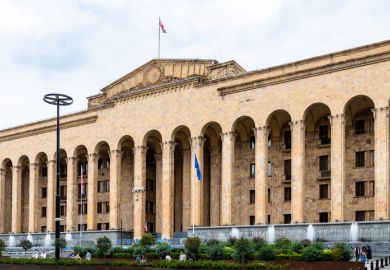The present moment can feel like “a dystopian time” for reasons beyond the coronavirus pandemic, according to Danny Dorling, Halford Mackinder professor of geography at the University of Oxford, whose prolific writings have ranged across issues of mortality, demography, health, housing, inequality, Brexit and social justice.
From all sides, he says, there is a regular stream of “rhetoric about everything speeding up” and predictions about a grim future for humanity. Yet what if everyone has got it all wrong – what if much of the evidence indicates that “stability is not just possible, but that we are heading towards it”?
That is the theme of Professor Dorling’s vastly ambitious new book, Slowdown: The End of the Great Acceleration – and Why It’s Good for the Planet, the Economy, and Our Lives, whose argument seems even more urgent and intriguing in light of the coronavirus crisis.
In normal times, he pointed out, people often worry that things are getting worse but tend to ignore the equally important issue of whether the deterioration is accelerating or slowing. A close look at the figures, the book argues, actually reveals signs of slowdown in many unexpected areas.
Along with the well-known declines in infant mortality, fertility and even the rate of population growth, Professor Dorling said, there has also been a technological slowdown – and, in retrospect, “the 1930s look like the greatest age of invention”.
Even talk of a data explosion is misleading, he argued. Big data may still be growing, but it is no longer increasing in size as fast as it once did, Professor Dorling suggested, because “there are only so many satellites going round the world” and “we then tend to duplicate the data”.
Slowdown also provides evidence of economic deceleration, declining rates of growth in productivity, gross domestic product and even “income inequality…now falling in more countries than it is rising”.
All this is to be welcomed because it “means the end of rampant capitalism”, writes Professor Dorling, suggesting that we might be “heading towards a more just and stable future”, particularly since “the alternative to slowing down – an ever-growing total human population, ever more divided societies, ever-greater consumption per head – would be a catastrophe”.
Among other targets, Professor Dorling’s book – which emerged from his research in population and demographics – savages the “many academics who pontificate before they measure [and] seem to think that we are still living through an age of rapid social transformation, even though so much appears to be solidifying and changing so much more slowly than before…to suggest that social change is amazingly rapid is in many ways naive”.
So how does the coronavirus crisis affect his analysis?
At the time of earlier pandemics, Professor Dorling noted, societies – and universities – often knew far less about the situation and tended to just keep calm and carry on: “In 1919, there are records in the university gazette of students dying in their rooms in Magdalen College, unable to go to take their exams, but the University of Oxford changed nothing.”
Today’s crisis, by contrast, has only confirmed for him, at a far more immediate level, something he has “spent 20 or 30 years of my life writing about – and feeling intellectually was correct – that the people who really matter are the people who care for you, deliver food and so on,” he said.
Other developments amid all the suffering had also assured Professor Dorling that the end of the unprecedented disruption might bring about a kinder and more sustainable form of politics. The crisis, he said, has revealed that “people were living quite well-off lives that were actually precarious”.
He added: “[The crisis] helps middle-class people understand the benefits regime. We have now housed the homeless in hotels. It is almost unimaginable how quickly we have acted in various ways.”
There is, of course, one great exception to the general picture of slowdown across recent decades: rises in CO2 emissions and global temperature.
In the first few weeks of the pandemic, there was “an almighty blip” as “a quarter of the carbon emissions from China had ceased”, Professor Dorling said. Although emissions had soon bounced back after dips following previous recessions, wars and the 1918-19 flu pandemic, an already slowing world economy made it much less likely this time round, he argued.
What is needed is something similar to the “generational change” that had occurred in relation to nuclear arms between the 1960s and the 1980s, Professor Dorling said.
Asked for more detail about how his aspirations for a better kind of politics could come to fruition, Professor Dorling referred to some research he had carried out with a colleague from Helsinki, about Finland as “a model of a future stable society with remarkably low inequality and remarkably good health, and the lowest infant mortality rate on the planet”.
matthew.reisz@timeshighereducation.com
Slowdown: The End of the Great Acceleration – and Why It’s Good for the Planet, the Economy, and Our Lives is published by Yale University Press.
POSTSCRIPT:
Print headline: Data show a ‘slower, better world’ ahead
Register to continue
Why register?
- Registration is free and only takes a moment
- Once registered, you can read 3 articles a month
- Sign up for our newsletter
Subscribe
Or subscribe for unlimited access to:
- Unlimited access to news, views, insights & reviews
- Digital editions
- Digital access to THE’s university and college rankings analysis
Already registered or a current subscriber?








